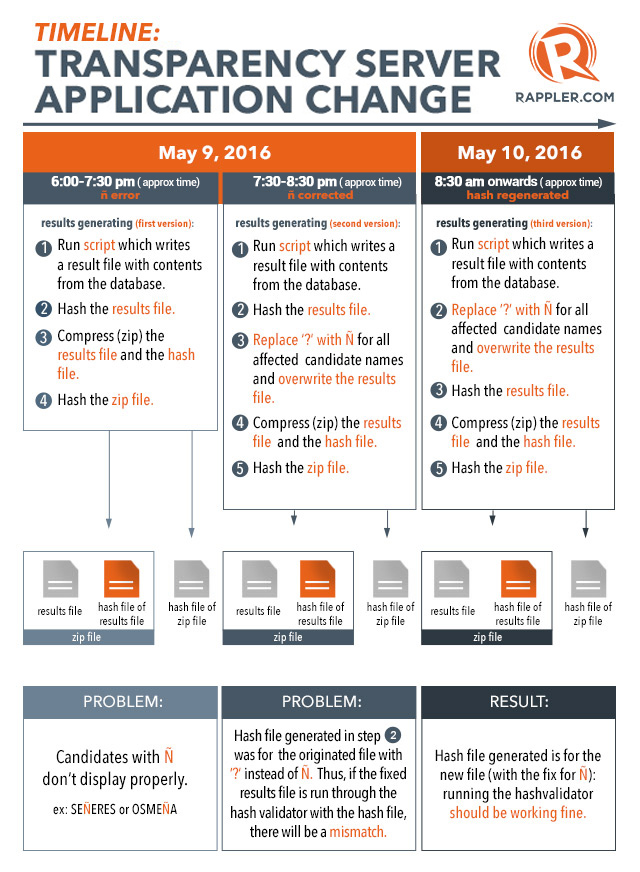
BRASÍLIA, Brazil – Brazil's President Dilma Rousseff was just hours from probable suspension late Wednesday, May 11, ahead of an impeachment trial that could end 13 years of leftist rule in Latin America's biggest country.
In a marathon debate in the Senate, momentum was clearly gathering against Rousseff, who is accused of illegal accounting maneuvers to hide budget holes in an election year. Voting was expected in the early hours of Thursday, May 12.
A simple majority in the 81-member Senate will trigger Rousseff's 6-month suspension pending the outcome of her impeachment trial. She would be replaced by her vice-president-turned-enemy Michel Temer, from the center-right PMDB party.
A 2/3 majority would then be needed to remove Rousseff permanently at the conclusion of the trial, probably in several months, with Temer remaining president until 2018 elections.
Rousseff has denounced the impeachment drive as a coup attempt, saying Temer has conspired against her to return the country to the right.
However despite her fierce fight back, the writing appeared to be on the wall.
Rousseff did not speak in public all day and her staff have already begun cleaning out desks at the presidential palace, known as the Planalto.
Brazilian media reported she would be officially notified of the vote's result at 10 am local time (1300 GMT) Thursday and would make a statement. A spokesman for her Workers' Party told Agence France-Presse that a crowd of supporters would gather outside to salute her as she drove off.
Temer was to form a new cabinet the same day, a spokesman told Agence France-Presse.
Trauma
Due to host the Olympic Games in Rio de Janeiro in less than 3 months, Brazil is struggling with its worst recession in decades and a corruption scandal reaching deep into the political and business elite.
The multiple crises have left the country divided between those blaming Rousseff and those loyal to the Workers' Party, whose transformative social programs have lifted tens of millions of people from poverty.

Senate President Renan Calheiros, who was overseeing the proceedings, told reporters that impeachment would be "traumatic" for Brazil.
But Rousseff's chances of escape evaporated as the Supreme Court denied her attorney general's last-ditch attempt to stop the process.
National divisions were plain to see outside Congress, where police erected a giant metal fence to keep apart small rival groups of demonstrators. Riot police pepper sprayed a group of Rousseff supporters.
Pro- and anti-impeachment protesters briefly also scuffled in Rio.
As the Senate session got under way, the square outside – Brasilia's most famous landmark – was shut off by police and eerily deserted.
A government worker heading into the presidential palace said the atmosphere inside was "very sad."
"Many of us are looking for new jobs," said the woman, who asked not to be named.
Temer a solution?
Senators made their cases in 15-minute blocks.
Senator Paulo Paim, a Rousseff ally, told journalists there would not be any "miracle" and that his side would concentrate on defeating impeachment when it came to the vote at the end of the trial, which could be months away.
His camp will be hoping to sway colleagues such as ex-football star Romario, who is now a senator for Rio de Janeiro, and was backing impeachment.
"I carefully went through (the impeachment documents)... and concluded that there is enough indication to admit the process," Romario said.
"Then, we will have the chance to know the facts better. That's what we'll do in the coming months."
But Magno Malta, a senator from the opposition PR party, said impeachment was the bitter medicine needed to heal a sick country.
"As soon as we vote for impeachment, the dollar will fall (against the Brazilian real), our stock market will rise and the patient will breathe again," he said.
Even some of those opposing Rousseff doubt that a change of power will resolve the country's underlying problems of corruption and mismanagement.
Pro-impeachment protester Sulineide Rodrigues said that even if she wanted Rousseff out she had few hopes for Temer improving things.
"We don't think Temer will be any better," Rodrigues, 59, said.
"But you know what we'll do? We'll keep coming back and keep having impeachments until there's someone there who listens to us Brazilians." – Sebastian Smith, AFP / Rappler.com




















